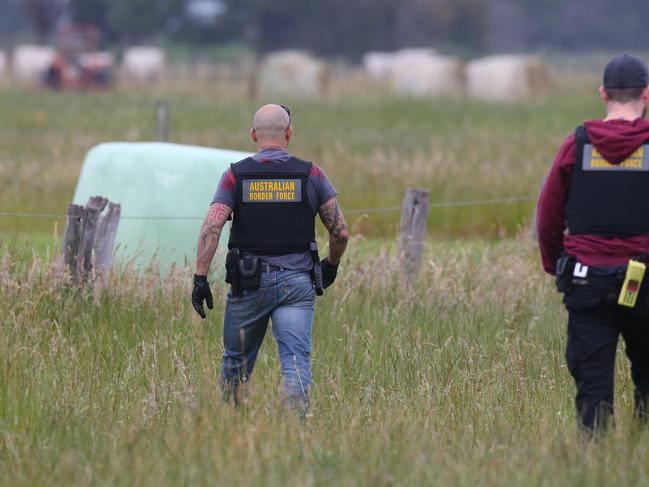Nationals to debate one-off amnesty for undocumented farm workers
The Nationals will tackle calls for undocumented farm workers to be given visas at its federal conference next week. Here’s what you need to know about the motion that will considered.

THE Nationals will debate whether or not undocumented farm workers should be given the chance to come forward and apply for a legitimate visa, as calls for a one-off amnesty continue to gather momentum.
A motion calling for an “appropriate visa” for illegal workers working in horticulture will be considered at next weekend’s Nationals federal conference, put forward by Victorian backbencher Anne Webster.
The visa could lead to “either a permanent or temporary legal status”, the motion states.
The Nationals’ policy committee and party room is also expected next week to consider a proposal to grant visas to tens of thousands of foreign workers believed to be on Australian farms without working rights.
The renewed push comes after the Federal Government’s National Agricultural Labour Advisory Committee recommended undocumented farm workers be given a one-off “status regularisation” without fear of deportation, to both address the current ag workforce shortages and shield against the public health risk of undocumented workers going unvaccinated during the COVID-19 pandemic.
Estimates put the number of illegal workers in Australia between 60,000 and 100,000, with thousands believed to be working on fruit and vegetable farms.
Ms Webster – who represents Victoria’s Mallee, a major horticulture region that has been accused in the past of depending on undocumented workers – said agriculture’s workforce issues were “critical”.
“We are at a crisis point regarding the lack of workers, and we have a workforce that is not able to make itself known,” she said.
Ms Webster said she had spoken with her federal colleagues and was confident she had general support for her motion, but anticipated “it is the detail and policy description that will be the issue”.
Ms Webster did not provide details of how a “status resolution” policy would work; however she did suggest a permanent residency pathway should be considered.
“My concern with not offering permanent residency is it could mean there’s not enough carrot for undocumented workers to step into the light,” she said.
The horticulture industry is divided on its position on the issue; however, parts of the sector are understood to have provided Ms Webster with suggestions for a possible two-year “pandemic status resolution” visa.
The advice – which is not a formal industry proposal – stresses any visa would need to be accompanied by increased compliance, and must cover all industries, not just agriculture.
Victorian Farmers Federation president Emma Germano – who has led calls for an amnesty since 2017 – said every undocumented person in the country should have the chance at status resolution and be protected under the law.
“Just because horticulture has admitted to this issue, doesn’t mean it’s just this industry and it would be irresponsible of Government to think it is,” she said.
“I hope the Nats are not using this for political pointscoring, particularly those with a lot of horticulture in their electorates, they need to understand the principles behind it.
“While it’s a humanitarian and public health issue, it makes sense, but if it’s just horticulture it rewards them for doing the wrong thing.”
University of Adelaide’s Joanna Howe – who has extensively researched the prevalence of undocumented workers in the sector – is working on a new report recommending potential ways a one-off status resolution could work, with minimal legislative change.
Dr Howe said the pandemic provided an opportunity for a one-off process, particularly given the potential public health risk posed by having thousands of unvaccinated people go under the radar during a pandemic.
“Without the pandemic and public health urgency, the arguments would be easier to push aside … but really there is no alternative to status resolution at this time,” she said.
Dr Howe said any regularisation should begin in the horticulture sector as research showed it was the main industry where undocumented migrants worked.
“It would make sense to test it out there first before rolling it out more generally,” she said.

